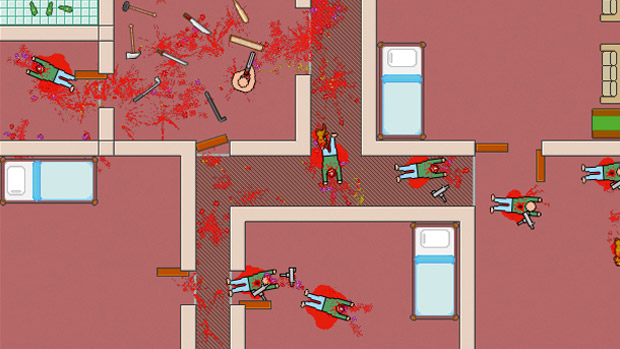Dennaton can reinvest in future games and buy fancy fish sticks
As described in a profile by Edge, “top-down f*ck-’em-up” Hotline Miami can be traced back to Super Carnage, an unfinished game that designer Jonatan “Cactus” Söderström’s started development on in 2004. After teaming up with artist Dennis Wedin, the duo decided to turn the concept into a full-fledged commercial title, which “was f*cking hard,” according to Wedin.
“Some days we were so f*cking tired, and we didn’t know if we were going to earn anything from this game or if anyone was even going to play it,” he explained. “But we always loved playing it. As soon as I made some graphics, and we put them in, and tried it out, it felt so good … and all the motivation was back.”
In describing Hotline‘s take on violence, Wedin says “We didn’t want the player to have a purpose for hurting people. There’s no girlfriend that’s been kidnapped, or president, or a country in need or anything. It’s just some weird phone calls you get that make you go and kill. Most games these days try to make it legit to kill enemies. You don’t do it because you’re bad. You do it to save a person or do something good. We didn’t want that for our game. The game is a slap in the face. A lot of players get angry with the ending — especially when they unlock the second ending and it doesn’t give them anything more.”
But for those players who did get seriously into the game, they’ll be pleased to hear that Dennaton has sold over 300,000 copies on PC as of February, to say nothing of the new PlayStation 3 and PS Vita versions or its inclusion in the Humble Indie Bundle. To date, it’s now over 500k copies sold on PC. “We can make more games and have money to spare,” said Söderström. “I’m not really used to having money to spend. I’m just not that materialistic, I guess. I am used to eating cheap noodles and fish sticks. And that hasn’t really changed yet.”
The Making Of: Hotline Miami [Edge]








